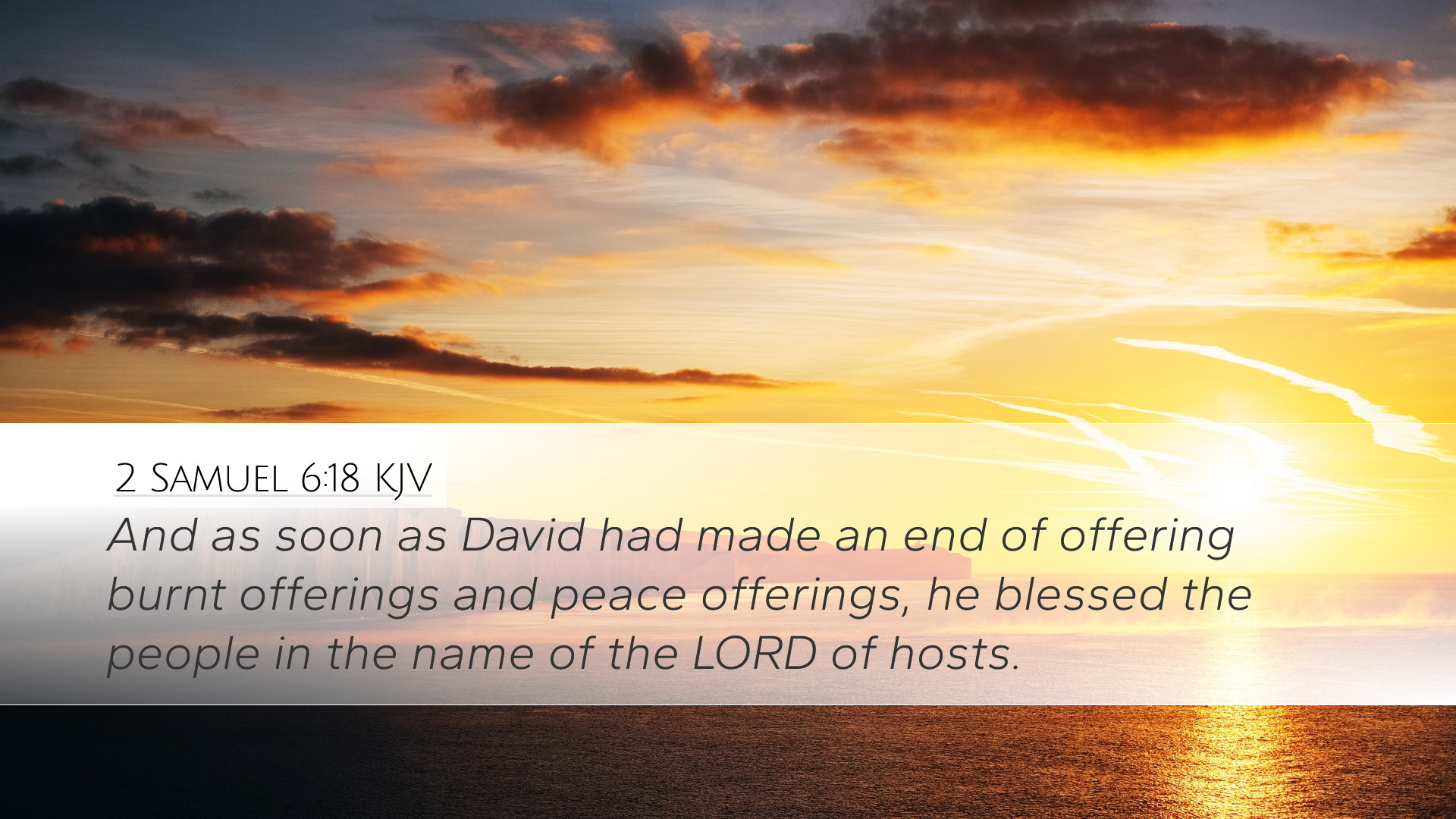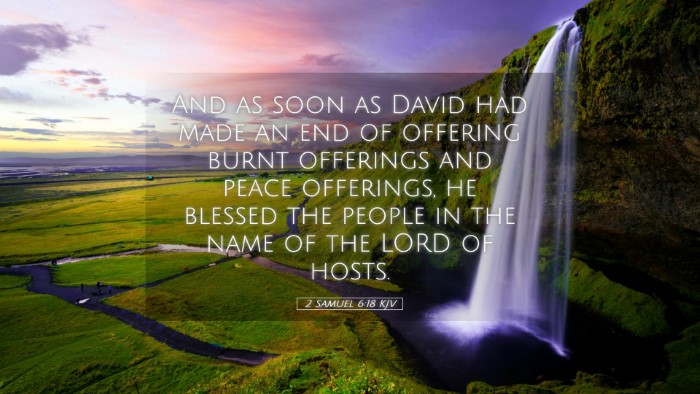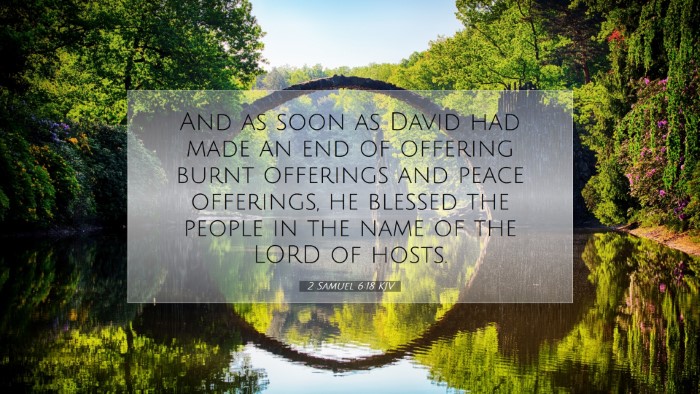Commentary on 2 Samuel 6:18
2 Samuel 6:18 states:
"And as soon as David had made an end of offering burnt offerings and peace offerings, he blessed the people in the name of the Lord of hosts."
Introduction
This verse serves as a pivotal moment in the narrative of David's kingship over Israel and represents the heart of worship and the leadership of King David. It reflects the importance of faithful worship and of blessing the people of God. The public domain commentaries from Matthew Henry, Albert Barnes, and Adam Clarke provide rich insights into the theological and practical implications of this scripture.
Contextual Background
Before diving into the specific verse, it is essential to understand the broader context:
- The Ark of the Covenant: David sought to bring the Ark into Jerusalem, symbolizing God's presence among His people.
- Public Worship: This event was characterized by public celebration, music, and worship, accentuating the communal nature of faith in Israel.
- David’s Leadership: David’s actions throughout this chapter reflect his commitment to God and his role as both a political and spiritual leader.
The Significance of Offerings
David's offerings of burnt offerings and peace offerings are crucial to understanding the spiritual tone of this chapter:
- Burt Offerings: These offerings, signifying atonement and devotion, demonstrate David’s recognition of God’s holiness and his need for forgiveness.
- Peace Offerings: Indicating communion with God, these offerings highlight the communal aspect of worship and the restoration of fellowship between God and His people.
Henry remarks that David’s sacrifices were made “with special devotion” and serves to demonstrate his understanding of the necessity of approaching God in the manner He has prescribed.
David’s Blessing of the People
After making these offerings, the text notes that David "blessed the people." This is particularly significant:
- A Role of a Priest-King: By blessing the people, David embodies the dual role of king and priest, illustrating the unity of worship and governance.
- Divine Authority: The blessing is invoked in the name of the “Lord of hosts,” highlighting God's sovereignty and the authority with which David blesses his people.
Barnes notes that the act of blessing was a high responsibility, and such blessings were customarily made at significant spiritual events, enhancing the communal reverence towards the God they served.
Theological Implications
This verse elucidates several key theological themes:
- God’s Presence: The Ark symbolizes the tangible presence of God among His people; thus, David’s actions reestablish that divine relationship.
- Worship as Central:** David’s dedication to offer sacrifices exemplifies the importance of worship in daily life and national identity.
- Leadership and Responsibility: David's blessings remind leaders of their profound impact on the spiritual welfare of their congregations.
Clarke emphasizes the need for leaders to invoke God's blessings during significant moments, consequently encouraging the faith community.
Practical Applications for Today
This passage offers vital lessons for contemporary pastors, students, and theologians:
- Prioritizing Worship: Like David, leaders should prioritize worship and recognize its central role in the life of the church.
- Embodying Spiritual Leadership: Pastors and church leaders are called to bless their congregations, reminding them of their identity in Christ.
- Community Engagement: Emphasizing community in worship, akin to David's approach, can strengthen faith and foster unity among believers.
Conclusion
The act of offering sacrifices and blessing the people, as shown in 2 Samuel 6:18, is a profound testament to the intimate relationship between worship, leadership, and the community of faith. By drawing from the insights of Matthew Henry, Albert Barnes, and Adam Clarke, we glean that these practices were not merely ceremonial but were deeply imbued with spiritual significance. For today’s leaders, this passage serves as a reminder of the ongoing need for genuine worship and the responsibility to bless and guide their congregations in the path of faith.


